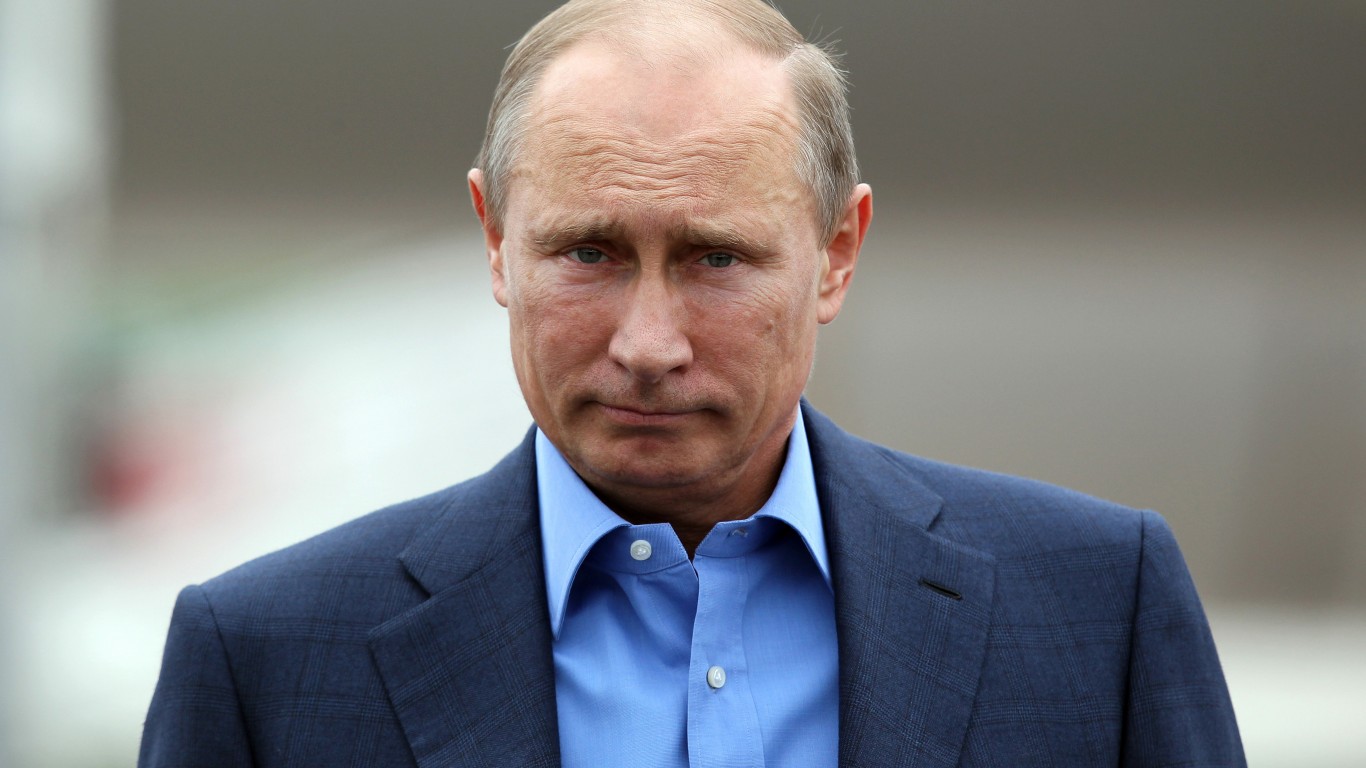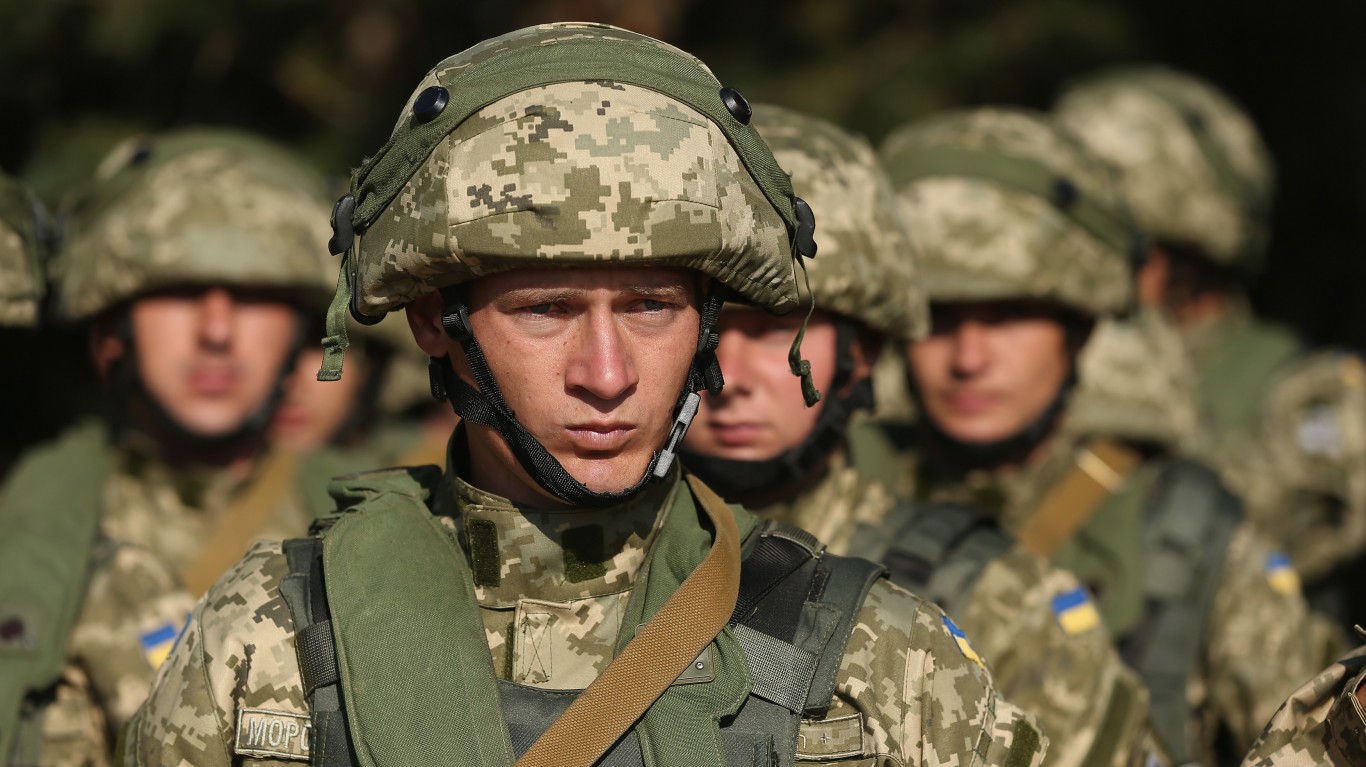
Russia will send mercenaries to Ukraine after President Vladimir Putin approved the deployment of up to 16,000 volunteers from the Middle East to fight alongside Russian-backed rebels in the country. The Guardian reported Friday morning that Russian defense minister Sergei Shoigu introduced the plan at a meeting of the country’s security council.
[in-text-ad]
According to the report, the meeting was broadcast on Russian state television. Putin said:
If you see that there are these people who want of their own accord, not for money, to come to help the people living in Donbas, then we need to give them what they want and help them get to the conflict zone.
Referring to captured U.S.-made Javelin (anti-tank) and Stinger (anti-aircraft) missiles that Russian forces have captured from Ukraine, Putin also told Shoigu:
As to the delivery of arms, especially western-made ones which have fallen into the hands of the Russian army, of course I support the possibility of giving these to the military units of the Luhansk and Donetsk people’s republics. Please do this.
Putin has also called for the nationalization of foreign-owned assets left behind by Western countries that have shut down their operations in Russia:
It is necessary … to introduce external management and then transfer these enterprises to those who actually want to work. There are enough legal and market instruments for this. There is no need for any arbitrary actions; we will find legal solutions to these questions.
Putin said Friday that there has been “positive movement” in negotiations with Ukraine. According to a Bloomberg report, Putin did not elaborate. Earlier this week, Ukraine President Volodymyr Zelensky expressed willingness to forgo membership in NATO and remain neutral. Zelensky was firm, however, in his rejection of giving up any Ukrainian territory.
One Russian oligarch has publicly disagreed with Putin. Vladimir Potanin, reportedly Russia’s richest person and the largest shareholder in the country’s nickel production industry, said in a Telegram message that Russia should not “slam the door” on foreign companies by seizing assets of those that left: “It would take us back 100 years to 1917 and the consequences – a global lack of confidence in Russia from investors – we would feel for many decades.”
Potanin also said Putin should not ban the export of some 200 Russian products and that the government should lift the restrictions on interest payments on foreign debt. Failing to make even small payments could result in creditor demands for immediate payment in full, a demand the country would have difficulty meeting. According to Bloomberg, Potanin said:
In light of the economic restrictions directed against Russia, there may be an understandable desire to act symmetrically. But the example of Western countries shows the economies of these countries themselves suffer from the imposition of sanctions against Russia. We must be wiser and avoid a scenario where retaliatory sanctions hit us ourselves.
President Joe Biden is expected to request an end to normal trade relations with Russia at a meeting of the G7 nations and European Union officials. Biden cannot do this unilaterally in the United States because only Congress has that power. There is, however, bipartisan support for terminating Russia’s trade status and relegating the country to a group that includes Cuba and North Korea. Other countries also would have to take independent action to kick Russia out.
About a third of Russian exports currently go to Europe, while just 5% are imported into the United States, according to Bloomberg data. Canada already has voted to exclude Russia from its list of “most-favored” nations, and the European Union said last week that it is also seeking to remove that designation from Russia. Absent most-favored-nation status, Russian goods would be subject to much higher tariffs than other members of the World Trade Organization.
Are You Ahead, or Behind on Retirement? (sponsor)
If you’re one of the over 4 Million Americans set to retire this year, you may want to pay attention.
Finding a financial advisor who puts your interest first can be the difference between a rich retirement and barely getting by, and today it’s easier than ever. SmartAsset’s free tool matches you with up to three fiduciary financial advisors that serve your area in minutes. Each advisor has been carefully vetted, and must act in your best interests. Start your search now.
Don’t waste another minute; get started right here and help your retirement dreams become a retirement reality.
Thank you for reading! Have some feedback for us?
Contact the 24/7 Wall St. editorial team.
 24/7 Wall St.
24/7 Wall St.



